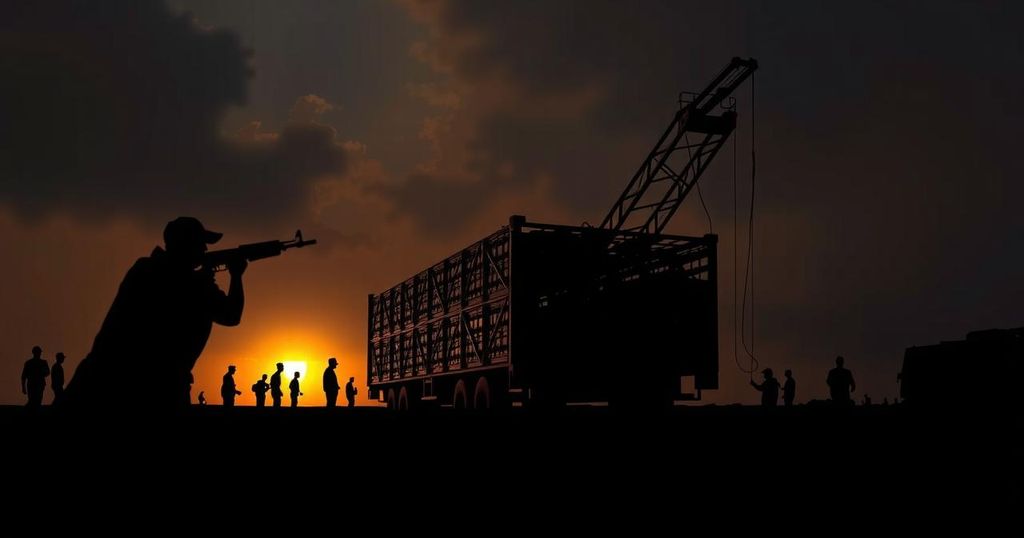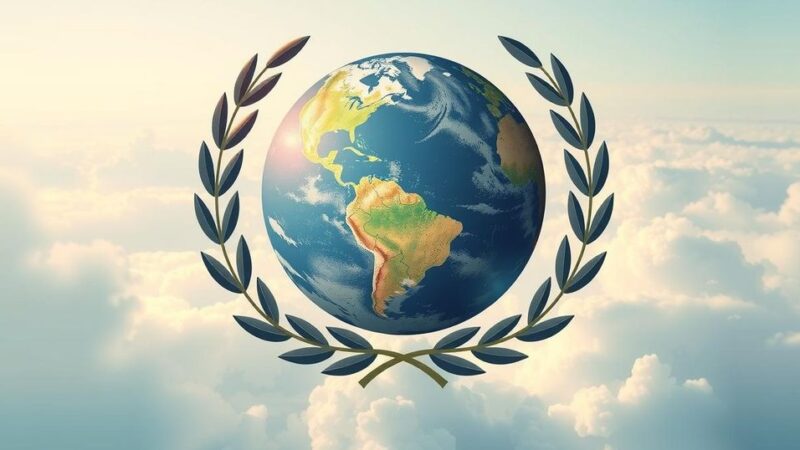Egypt has sent a second arms shipment to Somalia’s government, raising tensions with Ethiopia amid an ongoing dispute over the Grand Ethiopian Renaissance Dam. Ethiopia expressed fears that this could worsen regional security dynamics, especially following the controversial lease agreement with Somaliland. Somalia is reconsidering its diplomatic stance, potentially supporting anti-Ethiopian insurgencies, while forging closer military ties with Egypt. International criticism mounts regarding Ethiopia’s actions, with mediation efforts proving ineffective thus far.
In a significant development for the Horn of Africa, Egypt has dispatched a second arms shipment to Somalia’s federal government within a month. This action has invoked sharp criticism from Ethiopia, a longstanding rival of Egypt, as tensions intensify in the region. Egypt’s foreign ministry has justified this military assistance by asserting that it aims to enhance the capabilities of the Somali army to ensure security, combat terrorism, and uphold national sovereignty and territorial integrity. Ethiopia’s foreign minister, Taye Atske Selassie, expressed alarm regarding the situation, cautioning that the influx of arms could exacerbate an already precarious security landscape, with the potential for weapons to be seized by terrorist groups. The geopolitical tensions stem from a broader conflict between Ethiopia and Egypt concerning Ethiopia’s construction of the Grand Ethiopian Renaissance Dam on the Blue Nile, from which Egypt derives 95% of its fresh water supply. Compounding these issues, Somalia has recently found itself at odds with Ethiopia due to a controversial memorandum of understanding signed between Ethiopia and Somaliland regarding coastal lease agreements. As Egypt and Somalia align against Ethiopia’s water ambitions, experts warn of the risks associated with this military posturing. Harry Verhoeven, a noted analyst on Horn of Africa infrastructure and energy, stated, “These are all states which are fiscally at their limit… politicians know the fires they start and they can’t always control them. In response to the arms shipments, Somaliland, a self-governing entity persistently vying for recognition since its declaration of independence from Somalia in 1991, has raised alarms that these deliveries could spark an arms race in the region, further destabilizing security. Furthermore, the aforementioned memorandum of understanding may give Ethiopia an avenue to expand its influence by securing a naval presence, an aspiration heightened by Ethiopia’s landlocked status since the early 1990s. The evolving situation has led Somalia to reconsider its diplomatic strategy, as Somalia’s foreign minister, Ahmed Moalim Fiqi, stated that his government might seek to support rebel factions opposing Ethiopia should the memorandum advance. To address its concerns regarding Ethiopia’s dam project, Somalia has engaged Egypt in a military partnership, which includes participation in the UN-backed African Union peacekeeping mission aimed at combating the terrorist organization al-Shabaab within Somalia. This collaboration has exacerbated Ethiopian apprehensions, as they perceive it as a maneuver by Egypt to destabilize their country. Ethiopia’s intelligence director, Redwan Hussien, explicitly stated that Egypt’s involvement was motivated more by animosity towards Ethiopia rather than goodwill toward Somalia. The international response has been substantial, with the Arab League, the European Union, and the United States expressing their opposition to the Ethiopia-Somaliland memorandum. Ethiopia’s Prime Minister Abiy Ahmed views securing maritime access and unimpeded Nile utilization as pivotal for economic development. Efforts by external actors to mediate the crisis have yet to yield successful resolutions, further complicating an already fragile scenario in the region. Observers note that without addressing underlying grievances and fostering open dialogue among the parties involved, the risk of conflict escalation remains imminent.
The Horn of Africa has long been characterized by geopolitical strife, particularly driven by conflicts over resource management, territorial disputes, and national sovereignty. Egypt, reliant on the Blue Nile for water, has been in a protracted dispute with Ethiopia over the Grand Ethiopian Renaissance Dam. Somalia, a nation grappling with internal constraints and security challenges, has recently found itself entangled in the conflicts of its neighbors, primarily concerning Ethiopia’s dealings with the self-declared independent region of Somaliland. Historic tensions and emerging alliances shape a precarious balance, urging a closer examination of regional dynamics as external forces put pressure on long-standing disputes.
The recent arms shipments from Egypt to Somalia highlight an intricate web of geopolitical tensions in the Horn of Africa that intertwine water disputes and historical grievances. As Ethiopia faces condemnation over its dealings with Somaliland, Somalia’s shift towards military alliances with Egypt indicates a potential escalation of conflict. Without a concerted effort to address these multifaceted issues diplomatically, the region may slip further into instability, jeopardizing the security of millions already impacted by conflict and displacement.
Original Source: www.theguardian.com







